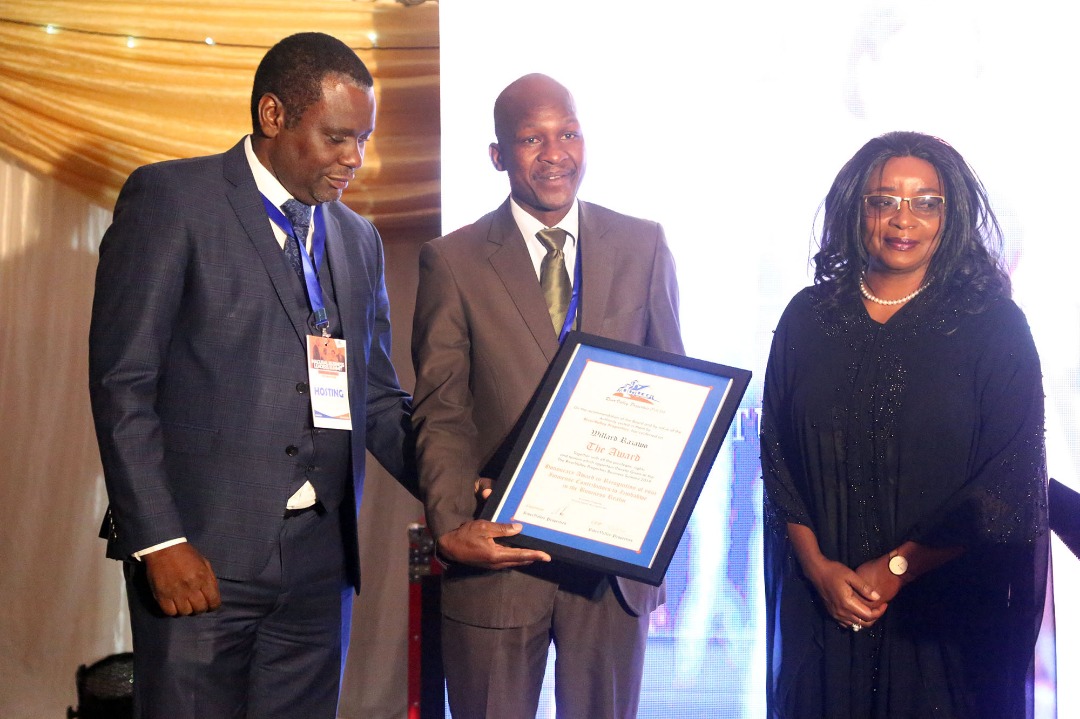The Zimbabwe National Environmental, Responsible business and
Corporate Social Responsibility Awards are set to be held virtually on 27
November at the Harare International Conference Centre in Harare.
The Corporate Social Responsibilty Network Zimbabwe (CSRNZ)
announced in a notice circulated last week that the event, which would be
held in conjunction with the Environmental Mananagement Agency (EMA)
will be preceded by regional awards ceremonies. The first regional awards
ceremony is pencilled for Manicaland Province on 16 October at the
Golden Peacock Hotels in Mutare followed by the Midllands and Masvingo
Provinces on 23 October at Pote Hill Hotel in Zvishavane. The
Matabeleland region awards are set to be held on 30 October at Bulawayo
Rainbow Hotel.
Business Events spoke to CSRNZ director, Willard Razawo who
explained that the awards, which started back in 2016 were aimed at
appreciating and thanking companies which invest in the communities
they operate in.
“These are appreciation awards just to thank organisations for the good
work of being responsible corporate citizens. All companies operating
Zimbabwe should operate responsibily. For example, a soap
manufacturing company’s products should be exactly as their packaging
states in terms of issues such as weight. They should not be found to
weigh less. That is responsible business,” said Razawo.
Regarding corporate social responsibility, Razawo explained that his
network was not concerned with companies which engaged in corporate
social responsibility initiatives just for window dressing.
“ Some companies just donate to look cool and secure some space in print media corporate social responsibility supplements. This is called
green washing. We are awarding those companies that go beyond the
optics and make meaningful investments in the communities they operate
in. Corporate social investment is not about public relations or marketing
but it must be part of business,” he said.
Razawo highlighted that corporate social responsibility should be a an
integral part of business. He said that when a company invests in CSR, it
should get a return on the investment, unlike mere donations.
“We don’t look at the case of someone who donated say 20 litres of
sanitiser and then give them an award. There are bench marks that we
consider when selecting companies for the awards. These include the
vulnerability of the target beneficiaries, project impact, project
sustainability, the monetary value of the investment and consistency of
CSR initiatives. Other areas that we look at are line of business in relation
to the CSR investment, CSR initiative’s relevance to the community,
people in relation to product considerations as well as company’s
compliance to statutory regulations.
The idea behind the CSR awards is to excite more companies to realise
the value of doing CSR. This is because CSR is an integral part of
business.
Asked how companies managed to invest in their CSR programmes at a
time that there was very little economic activity due to the lockdown to
justify such investment, Razawo said that the pandemic saw more
companies investing in COVID-19 related activities and other areas.
“The COVID-19 pandemic saw more companies investing in various
initiatives. Delta Corporation donated Z$6 million towards the coronavirus
mitigation initiatives despite the lockdown. It would not be surprising that
were it not for the pandemic, the company could have invested less than
Z$6 million. So lean economic times do not necessarily mean the
cessation of all CSR programmes by all companies,” Razawo explained.





